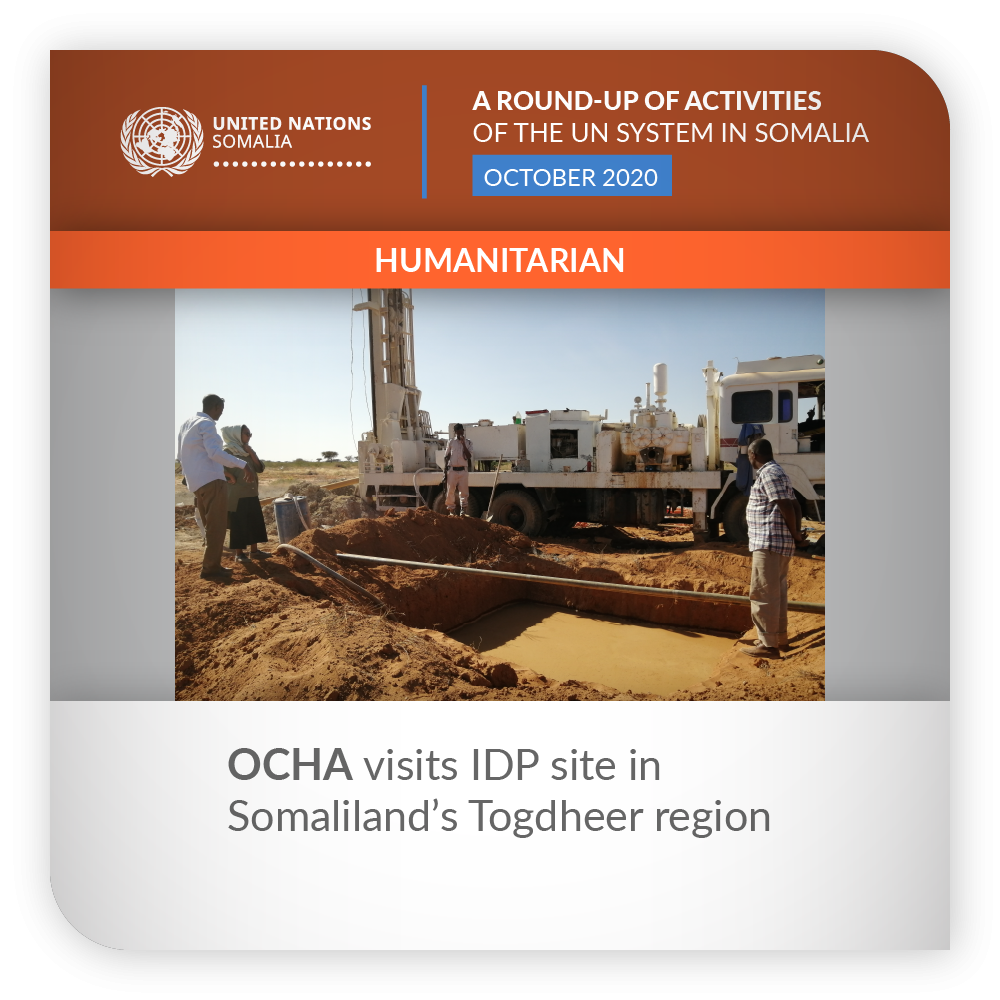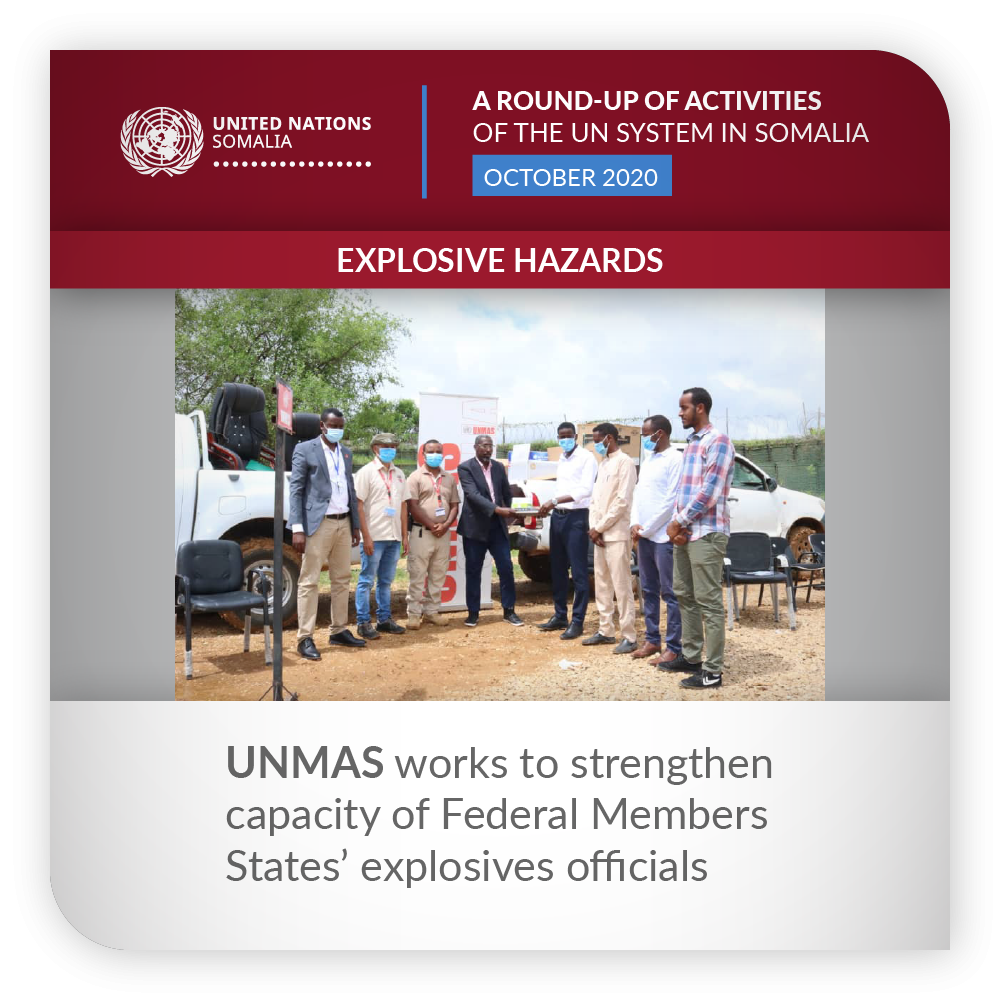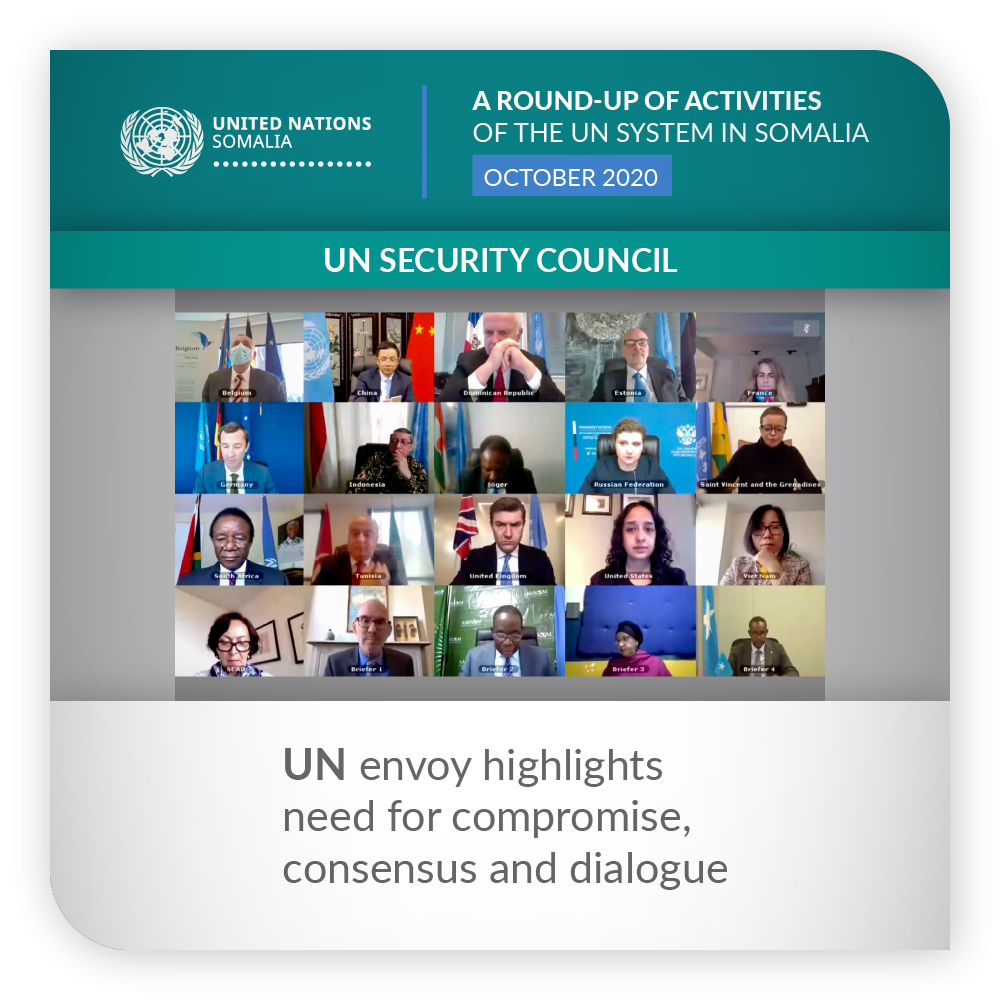 | Fisheries | FAO supports marginalized fisherfolks on Bajuni Islands FAO provided fisherfolks on the small islands that make up the Bajuni archipelago off the Somali city of Kismayo with six boats and comprehensive fishing kits which will allow them to properly preserve fish, while allowing them to fish for longer hours. With funding from the UK Foreign, Commonwealth and Development Office, the project was planned and implemented together with the Jubaland Ministry of Fisheries and Marine Resources with the aim of strengthening the resilience of vulnerable, marginalized fishing communities in Kismayo and the Bajuni Islands. The kits will benefit some 700 people, with each kit consisting of a locally-built fiberglass artisanal fishing boat and an outboard engine, along with longline fishing gear, a cold box for hygienic fish storage and other items to enable fisherfolks to fish safely and properly preserve any fish caught. Three of the boats were given to island communities on Madhawa Island, two to Chula Island, and one to Jovia Island. Also, two solar-powered ice machines were installed, one on Madhawa Island and the other in the mainland city of Kismayo. http://www.fao.org/emergencies/fao-in-action/stories/stories-detail/en/c/1331065 | |
 | Livelihoods | UN-Habitat provides cash transfers to vulnerable households in Berbera Over the past three months, UN Habitat has been providing cash transfers of $60 to 575 households of the most vulnerable people in Berbera, in Somaliland. The beneficiaries are comprised of vulnerable groups, such as the elderly, mentally or physically disabled; people with chronic illnesses; widows and widowers; people who are divorced, separated or abandoned; and people who have lost their jobs as a result of the COVID-19 pandemic. The payments are made in partnership with the Berbera Municipality Authority, with the money channeled to the beneficiaries through a local mobile payment system (Zaad) allowing for efficiency and transparency. The cash transfer programme is a social protection initiative linked to the COVID-19 response under the Berbera Urban Development project funded by the European Union. It started in August and is expected to end in January next year. | |
 | Peacebuilding | IOM empowers women to become agents of change and peace IOM attended the third edition of the Paris Peace Forum to present its groundbreaking project on Women, Peace and Security – part of broader peacebuilding efforts in Somalia. Through this project, IOM engaged Somali women networks and organizations to support 150 women who made the risky decision to disengage from violent extremist groups and empower them to become agents of change. The project was funded by the UN Peacebuilding Fund in Somalia and implemented in collaboration with UNSOM, and the event in France drew more than 10,000 participants, including heads of state, international organizations and civil society representatives. https://twitter.com/IOM_Somalia/status/1327226095553351681?s=20 | |
 | Humanitarian | OCHA visits IDP site in Somaliland’s Togdheer region An OCHA team travelled to Burao in Somaliland’s Togdheer region, where they visited the 18 May site for internally displaced people (IDP), some ten kilometres south of Burao town and where an estimated 3,000 families live. The majority of the IDPs came to the site following eviction from their previous locations near the local airport last year, and the Burao municipality is planning to give land titles to the IDPs at the 18 May site. The IDPs expressed their intention to remain in place instead of returning to their villages of origin. However, access to basic social services, including health, water and education, is very limited, given the distance from the town. The OCHA officials stressed the importance of ensuring durable solutions for such IDPs. | |
 | Legal | UNDP supports centres to mediate disputes and reduce domestic violence In towns across Somalia, UNDP has helped set up Alternative Dispute Resolution (ADR) centres in collaboration with justice ministries. These allow people to bring cases for mediation, many of them dealing with offences against women – such as domestic violence, which has risen since the start of the COVID-19 pandemic. Combined with cases supported by UNDP’s free legal offices, the ADRs have dealt with almost 200 disputes from July to September 2020. https://undpsom.medium.com/sometimes-it-helps-to-talk-a86615f47636 | |
 | COVID-19 response | UNFPA helps set up isolation area for pregnant and breast-feeding women in Garowe hospital UNFPA supported the Puntland Ministry of Health to establish a COVID-19 isolation area for pregnant and lactating women at Garowe General Hospital. | |
 | Protection | UNHCR, Somali and Kenyan officials meet on voluntary returns programme UNHCR and the governments of Kenya and Somalia held a cross-border meeting at which they discussed the gradual resumption of the voluntary repatriation programme. More than 50 participants took part in the virtual meeting, including Somalia’s Commissioner of the National Commission for Refugees and IDPs, Amina Said; Kenya’s Commissioner for the Refugee Affairs Secretariat, Moses Makori; and UNHCR’s Representative for Somalia, Johann Siffointe, and UNHCR’s Representative for Kenya, Fathiaa Abdalla. The meeting agreed on a pilot project which will see the voluntary return of Somali refugees from Kenya from the first week of December. In light of the ongoing COVID-19 pandemic, the voluntary programme will begin with small-scale return flights and target refugees testing negative for COVID-19. The programme will also strictly adhere to guidelines laid out by WHO and governments to prevent the spread of the disease. | |
 | Children | UNICEF and partners called for the passage of the Child Rights Bill On 20 November, along with the Ministry of Women and Human Rights Development and partners, UNICEF marked World Children’s Day and called on the Somali authorities to approve the Child Rights Bill to protect child rights in the country. Somalia ratified the Convention on the Rights of the Child (CRC) in October 2015. It is the most widely-ratified human rights treaty in the world and it provides the basis for the realization and protection of all rights for all children. It ensures children everywhere can enjoy their right to grow, learn, play, develop and flourish with dignity. The Child Rights Bill, awaiting approval by the cabinet, demonstrates the commitment of the Somali government to ensure the articles under the CRC are upheld. Once the cabinet approves the bill, it will go to parliament for debate and adoption. https://www.unicef.org/somalia/press-releases/unicef-and-partners-call-passage-child-rights-bill | |
 | Economic Development | UNIDO supports training of trainers on health and safety of workers Keeping workers in various Somali industries and sectors healthy and safe is crucial to protect public health and help businesses to survive during the COVID-19 pandemic – this is especially so as the cost of preparing the workplace and workforce for COVID-19 prevention is often lower than responding when infections and outbreaks occur. In this context, UNIDO designed a three-day programme on COVID-19 occupational health and safety training for Somali trainers, with a particular emphasis on the risks in Somalia’s most critical economic sectors – fisheries, agriculture and livestock. The training was aimed at experts from the Ministry of Commerce and Industry, the Somali Chamber of Commerce, at both federal and state levels, the Enterprise Development Units in various regional cities, and the Federation of Somali Trade Unions. The experts will transfer the knowledge gained from the training to the Somali workforce in different organizations. The training was funded by the Italian Agency for Development Cooperation (AICS) and involved the collaboration of Notre Dame University (NDU) in Lebanon. | |
 | Explosive Hazards | UNMAS works to strengthen capacity of Federal Members States’ explosives officials UNMAS handed over office furniture and IT equipment to the south-west regional office of the Somali Explosive Management Authority (SEMA). The donated material is aimed at helping strengthen the capacity of SEMA regional offices to improve the coordination and management of their humanitarian mine action interventions across the country. The donation was made possible with support from the Government of Japan. | |
 | UN Security Council | UN envoy highlights need for compromise, consensus and dialogue He also stressed that the “broad political consensus” reached in September, and which ended a two-year stalemate in Somalia, must be “preserved and indeed deepened,” and highlighted the need for compromise, consensus and dialogue between the Federal Government and Federal Member States for the country's continued progress. https://unsom.unmissions.org/statement-un-envoy-james-swan-security-council-situation-somalia-3 | |
 | Food systems | WFP supplies farmers and food retailers with solar fridges, helping boost fresh produce sales A key part of WFP’s work in food systems is to support both farmers and retailers with refrigeration technology, tailored to the Somalia context, with the aim of improving the longevity of perishable nutritious food along the supply chain. So far, 19 WFP-contracted retailers have been equipped with solar-powered smart fridges and, on the production side, WFP now plans to provide ten farmers’ groups with larger cold storage solutions. These groups will also be linked with WFP retailers. Improvements to the fresh produce supply chain increase the availability and consumption of nutritious food, such as fresh fruits, vegetables, meat and eggs – particularly crucial for pregnant and lactating women and girls. These improvements also strengthen livelihoods by reducing food losses, boosting trade in perishable goods, and increasing the profitability of crops. WFP-contracted retailers have reported a significant increase in the sales of fresh produce, from $7,361 in May 2019 to a cumulative total of almost $700,000 now – partly attributable to cold storage facilities. | |
|
A round-up of activities of the UN system in Somalia in November 2020
- 30 November 2020
- Newsletters and Round-ups of UN Activities
- Top Stories






